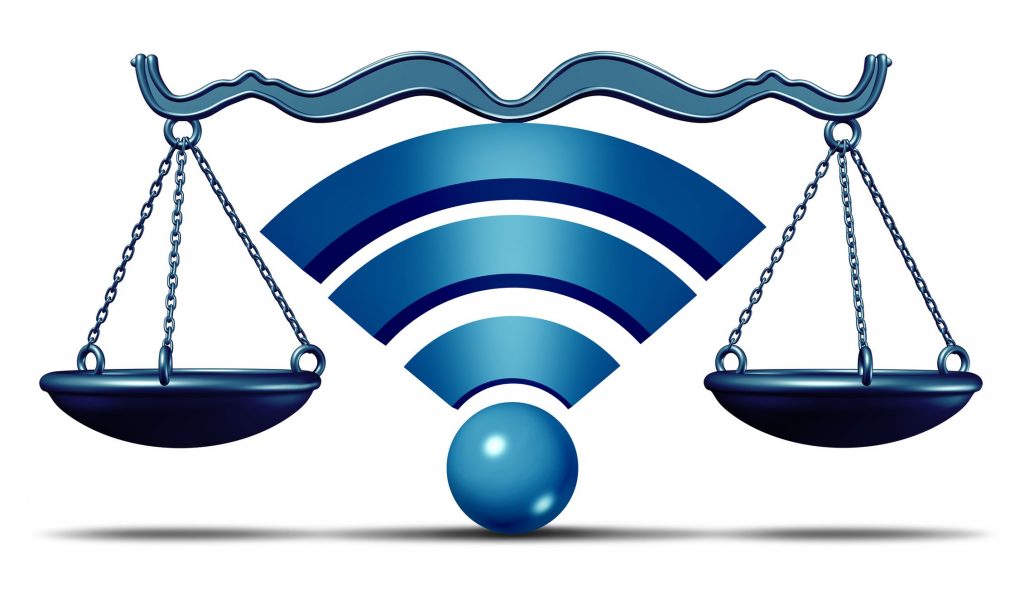The issue of net neutrality has occupied a place in recent public discourse regarding information and the way receive it in the internet age, almost as much as the term fake news.
Although supporters of net neutrality in the U.S. Senate have enough votes to overturn the Federal Communications Commission’s (FCC) December repeal of this Obama era policy, that bill still would have to pass through the House of Representatives and President Trump, who has publicly opposed net neutrality and likely would veto any bill to restore it.
Net neutrality mandates that internet service providers (ISPs) treat all internet content, users and websites the same. It prevents ISPs from creating a tiered service, in which users able to pay more would receive preferential, faster service than users who did not choose to pay for premium service. Conversely, it prevents ISPs from singling out websites for slow or blocked access.
It became law in 2015 when the FCC reclassified internet access from an information service to a common carrier telecommunications service – a public utility like the telephone service. The FCC repealed that decision by a 3-2 vote on Dec. 14.
So far, none of the major carriers have made any significant changes based on the repeal, but the implications should give medical device users pause.
While slower service might be a mere inconvenience for someone trying to purchase a book on Amazon, the implications would be far more serious for someone whose well-being is reliant on their device’s ability to connect to high speed internet, to say nothing of potential impact on the interoperability of EHR systems.
An opinion piece on Health Affairs calls the internet a “public good,” arguing that “through its evolution, it has become essential. There is growing evidence that this is true for health.”
Healthcare Implications
Net neutrality impacts healthcare in five vital areas, writes Katie Sawyer:
Growth in mobile health: Technology such as smartphone health apps, patient portals and wearable devices has grown worldwide with the U.S. leading the way with a 50% mobile health adoption rate.
Telemedicine: Patients living in remote areas or those with limited mobility can receive care in, or at least closer to, their homes. But telemedicine requires high-speed internet, and a tiered-system could price some patients out of the telehealth market.
HIPAA compliance: Net neutrality supporters have expressed concern that its repeal could create situations where internet service providers could screen private medical information. Minus net neutrality, ISPs can charge based on content, which in the case of medical information, would clearly violate the Health Insurance Portability and Accountability Act.
Small health practices: Small healthcare practices are more competitive with net neutrality, its supporters say. The argument is that minus regulations, ISPs could price the fastest broadband access out of the range of smaller practices.
Ryan B. Marcus and Lisa Schmitz Mazur, both of whom advise healthcare organizations on legal matters, note that the FCC believes reduced regulation will spur ISPs to invest in upgrades and innovation. Should this prove true, they write, this may actually benefit providers in remote areas should some of the ISPs attention be focused on improving access outside urban areas.
Supporting this view is the fact that the FCC has adopted proposed rulemaking to grant the Rural Health Care Program more funding for the modernization of rural health care providers’ communication systems.
Considering the largely volatile reaction to net neutrality’s repeal, it seems doubtful that any ISP will take immediate advantage of the lack of regulation. In addition, a Senate resolution to block the repeal has been gaining steam. While predictions are weighted toward the negative side, it’s too early to tell what effect the repeal of net neutrality will have on health IT, or even whether the repeal will outlive the uproar it has created.




